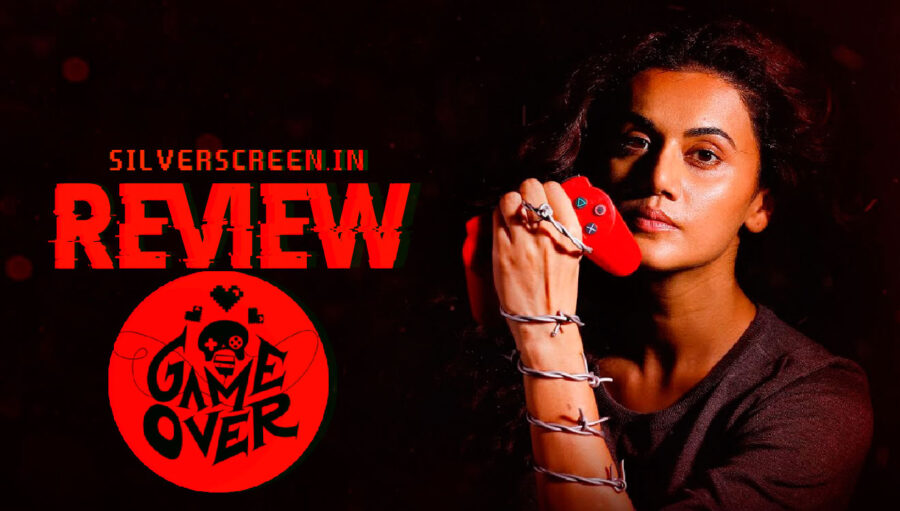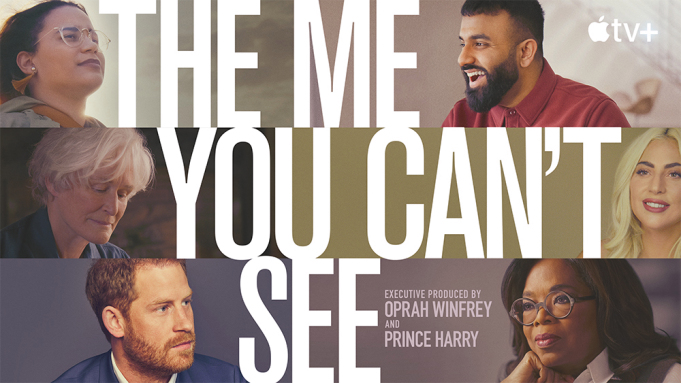Director: Ashwin Saravanan
Cast: Taapsee Pannu, Vinodhini Vaidynathan, Anish Kuruvilla, Sanchana Natarajan, Ramya Subramanian, Parvathi T
Music: Ron Ethan Yohann
In 2016, Pawan Kripalani made Phobia starring Radhika Apte. Its protagonist Mahek suffers from agoraphobia; open spaces and social interactions give her anxiety attacks. Most of the film is set inside a single apartment which adds to its claustrophobic nature and Mahek’s closed, walled existence. We slowly find out that her conditions are post traumatic, Mahek having suffered multiple cases of sexual harassment. Kripalani’s film then becomes an allegory of a survivor trying to live with the memory of an attack and its psychological aftereffects. Now comes Ashwin Saravanan’s Game Over, starring Taapsee Pannu, that is made of the same building blocks as Phobia, but its architecture is different, its interior design and colours are different. Therefore, it is just as original and compelling. Swapna (Taapsee Pannu) has bouts of what the doctor calls ‘anniversary reaction’, her anxiety and other symptoms grow manifold when she gets closer to the anniversary of an incident. In her case, the date is New Year’s eve. Her condition is very similar to Mahek’s though it is not agoraphobia – Swapna lives in a large house with her maid Kala (Vinodhini) and fears dark places. Darkness sheds light on a repressed memory that rips her from within, taking over both body and mind. Her tattoo – a joystick on her wrist – sears with pain and anxiety grips her forehead.
Ashwin Saravanan is that filmmaker for whom visuals supersede words, like it should for all the good ones. I imagine his scripts will have scribbled notes about shots and compositions that’ll outnumber the words describing the setting and actors’ lines. Consider how he expresses closure in his film – something terrible has been bothering Swapna and it manifests as both physical pain and mental stress. She then gets a visitor who brings with her an explanation for Swapna’s troubles, thereby giving Swapna a brief but important closure – she can see the light in her life again. A fridge door is ajar and the alarm signalling this goes on. As Swapna feels better, Kala – happy and satisfied with Swapna’s improved condition – smiles and closes it. This is used again later in the film in a more terrifying circumstance. Locations blend into each other in Game Over. We are in a tattoo studio, but we see the wall of a different location. The film constantly plays with our mind, visually. Ashwin Saravanan and Kaavya Ramkumar’s script is full of such visual ditties – a flashback in black-and-white is told only through loving vignettes that require no lines to complete the emotion, a tattoo needle making the skin twitch – reflecting the tattooed person’s mental state – a microsecond before contact, and the chilling opening sequence that even teases Hitchcock’s Psycho plays out like found footage and horrifying in ways only found footage can be.
In 103 minutes, Ashwin Saravanan packs an engaging thriller that also wants to make a larger point about sexual harassment and how a victim’s trauma can manifest in various ways long after the incident. In other words, how tattooed the experience can become in someone’s life. It must be said that Game Over can be a potential trigger as nothing is withheld even if Ashwin doesn’t make anything explicit. Swapna is a video game designer who likes to work from home. When she is not designing, she is playing – mostly Pac-Man. Her house is filled with visual cues – words like deja vu appear on frames and her storeroom is filled with video gaming paraphernalia. Sometimes, they can get in your face – like that line about two lives remaining and the name of the tattoo studio – Immortal Inks. But for the most part, these are interesting decorations that add to the visuals. This is a film filled with women – professionals, terminal disease survivors, travellers, housekeepers.
In the film’s first stretch, we see various young women out and about – in public spaces, traveling, returning home, inside their homes. The colleague Swapna speaks to on the phone is also a woman. The tattoo artist is a woman. And there is the venerable Kala Ma. There is a womanly solidarity running through the veins of Game Over that is rare in our cinema. And all of this is praiseworthy because Game Over isn’t diluted into a male saviour enterprise. Among Swapna’s accoutrements are male superhero bobbleheads but there is a lone Wonder Woman among them. The majority of men appearing in the film are faceless and all faceless men are predators. Or there is the unseen father who blames the victim. It is like real life. Predators and harassers can be anyone – bosses, friends, partners, spouses etc. They are not just faceless; they are also numberless. This comes forth in the form of a brilliantly built-up sequence in the second half. There is enough foreshadowing too if you know where to look – like the ghosts in Pac-Man. Or the electrician who comes to repair the generator (listen to a number here), again whose face is unclear on the CCTV. As a result of all this, the least surprising thing about Game Over is that it boasts of a woman in the writing department.
Recommended
Game Over gives in to a variety of readings. The obvious ones relate to sexual harassment, PTSD, the resulting symptoms beginning with anxiety/panic attacks. The film also has a terminal disease survivor angle to it, all of which sits well with the larger video game allegory that is so smoothly handled by Ashwin and Kaavya. As Swapna receives more lives, she gets better. But not before putting her in a position that is so hopeless she has zero chance of survival. They break her leg and put her in a wheelchair. It is not darkness, not jump scares (though there is a genuine, incredibly scary moment soon after the interval) that put Game Over firmly in the horror/thriller genre. It is watching Swapna repeatedly fail, fail again and fail better as Samuel Beckett would put it.
Taapsee Pannu turns in a bravura effort, making Game Over not only a fine companion piece to Phobia but also her performance a fine hat tip to Radhika Apte’s inspired turn in that film.
*****
The Game Over review is a Silverscreen original article. It was not paid for or commissioned by anyone associated with the movie. Silverscreen.in and its writers do not have any commercial relationship with movies that are reviewed on the site.



